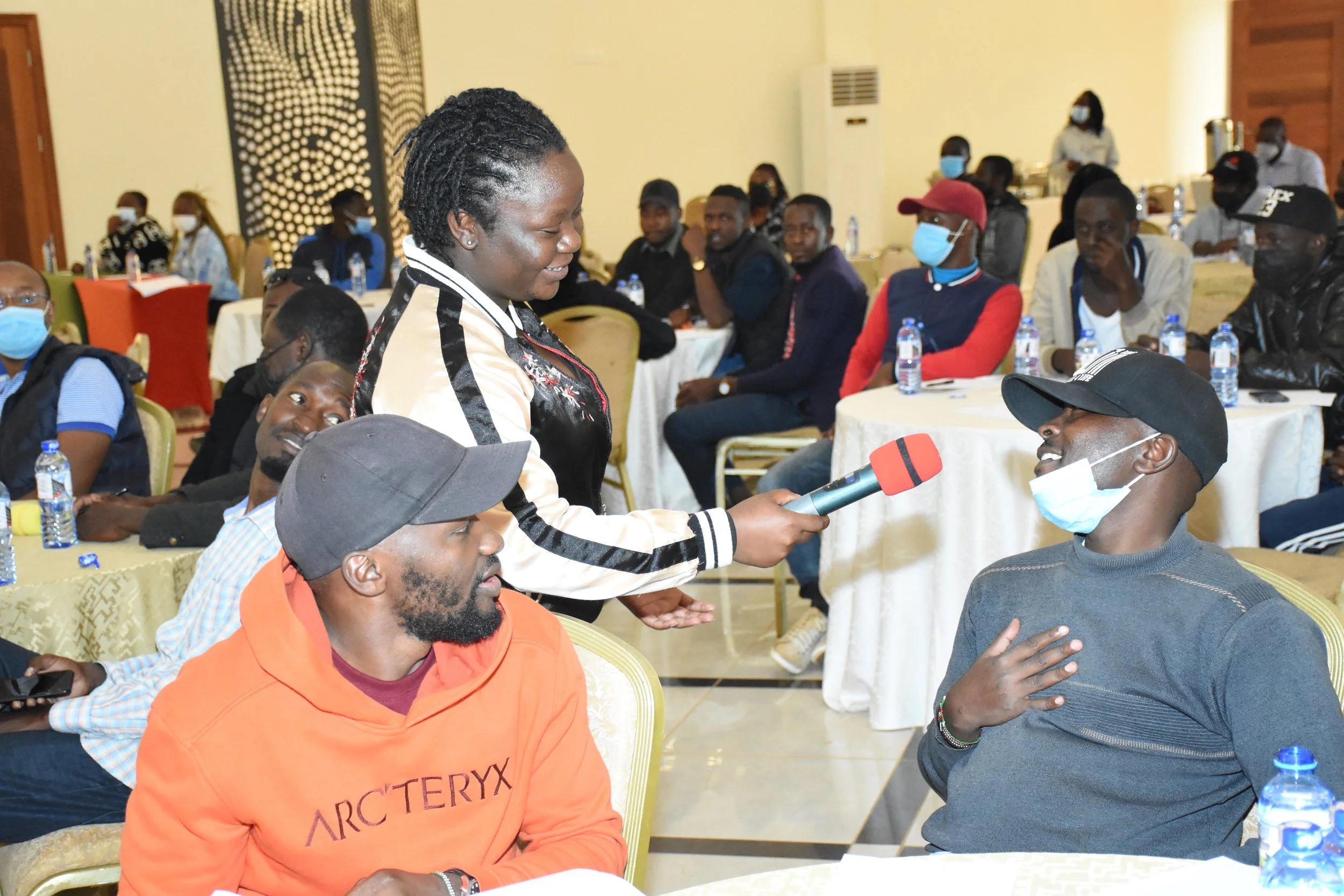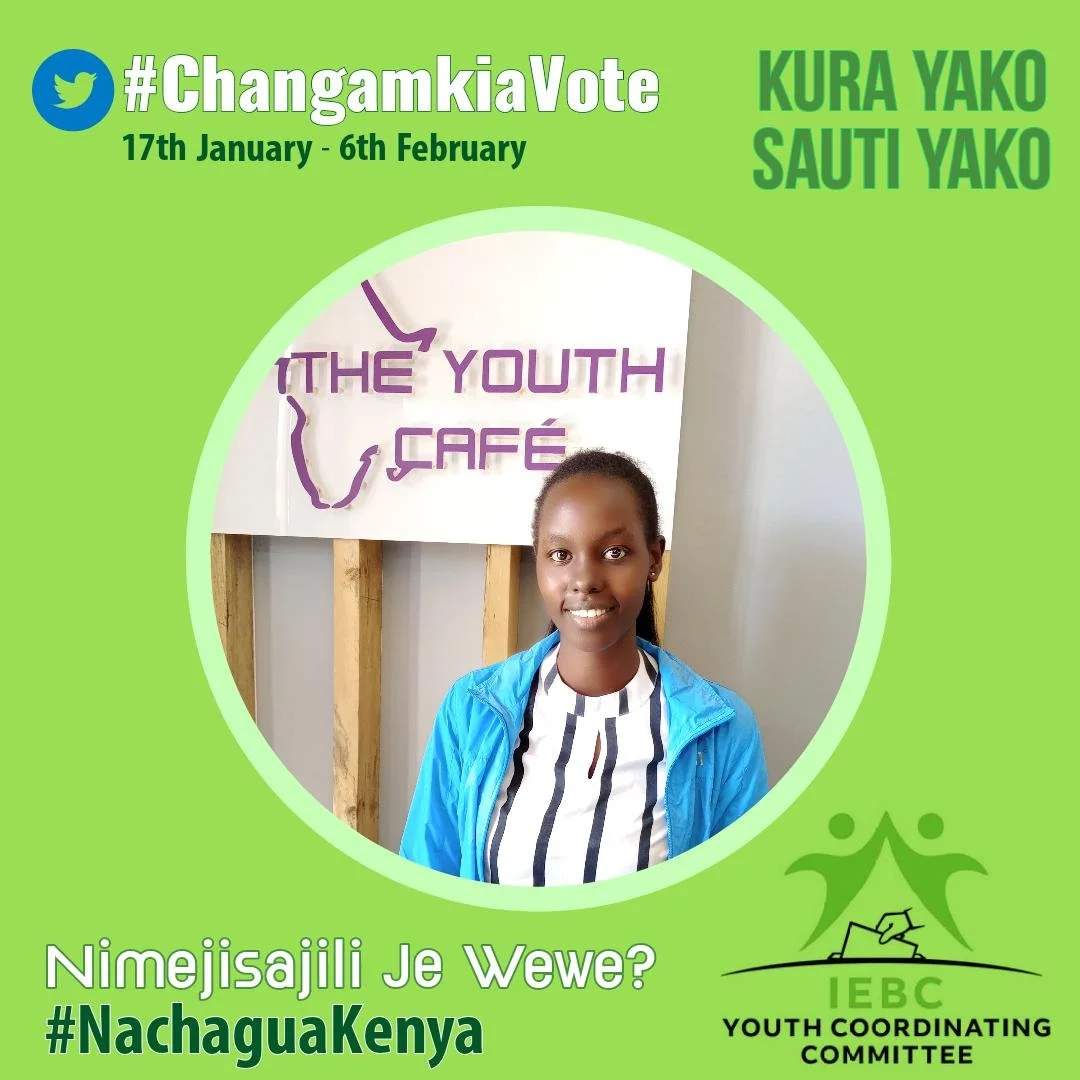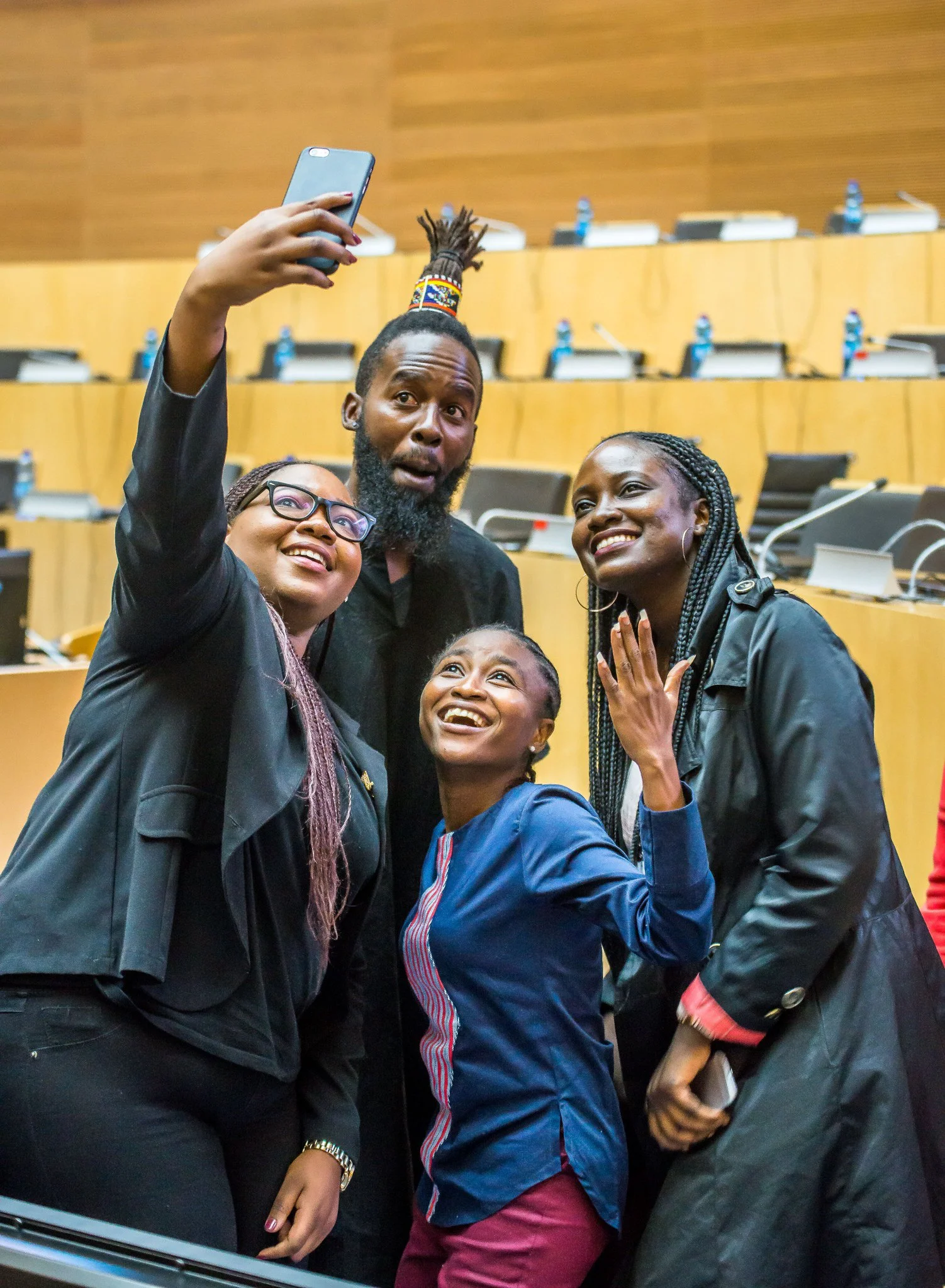The Youth Café trains the youth on civic education driven by result-oriented, evidence-based performance, which informs Our Theory of Change: A Pathway for Action, Sustainability, Results, Learning, and Adoption. These changes include institutional changes, service systems, community norms, partnerships, public will, policies, regulations, service practices, business practices, and issue visibility.
How Can We Get More Young People To Register As Voters.
Acknowledging the dire need for increased youth participation in the electoral process, The Youth Café has been working on ways to get more young people to register as voters. Research by the Office of the United Nations High Commissioner for Human Rights (OHCHR), shows that the youth could be largely categorized in three distinct demographics, classified according to age; with the first demographic being young people aged between 18-24 years, then 25-29 years and 30-35 years. Each of these key demographics will require a different approach to get them to register as voters.
The Youth Café Discussions With The Chief Justice On Social Transformation Through Access To Justice.
In commemoration of the International Day of Democracy, a section of the Civil Societies Organizations, The International Commission of Jurists, International Justice Mission Kenya, Kenya Human Rights Commission, Amnesty International Kenya, Centre of Rights Education and Awareness, Transparency International- Kenya, and The Youth Café held a virtual meeting with the Chief Justice, the president of the Supreme Court, honorable Lady Justice Martha Koome, On September 17, 2021, to deliberate on collaborations and contributions towards the implementation of the Chief Justice’s vision of social transformation through access to justice.
Africa, Youth and Supranational Democracy | The Youth Cafe
By Susanna Cafaro,
Many people react with suspicion and mistrust when they hear the two words global governanceand even worse when they hear about global laws or global constitutionalism. I can understand them. They are afraid of an authoritarian, elitist system, going to limit the sovereignty of states and communities, to suppress self-determination, to flatten cultural identities. A real nightmare. Paradoxically, this is what happens with globalization in the absence of a global rule of law, what happens right now, when the forces of market and the pressure to competitiveness are left alone to govern processes and outcomes.





